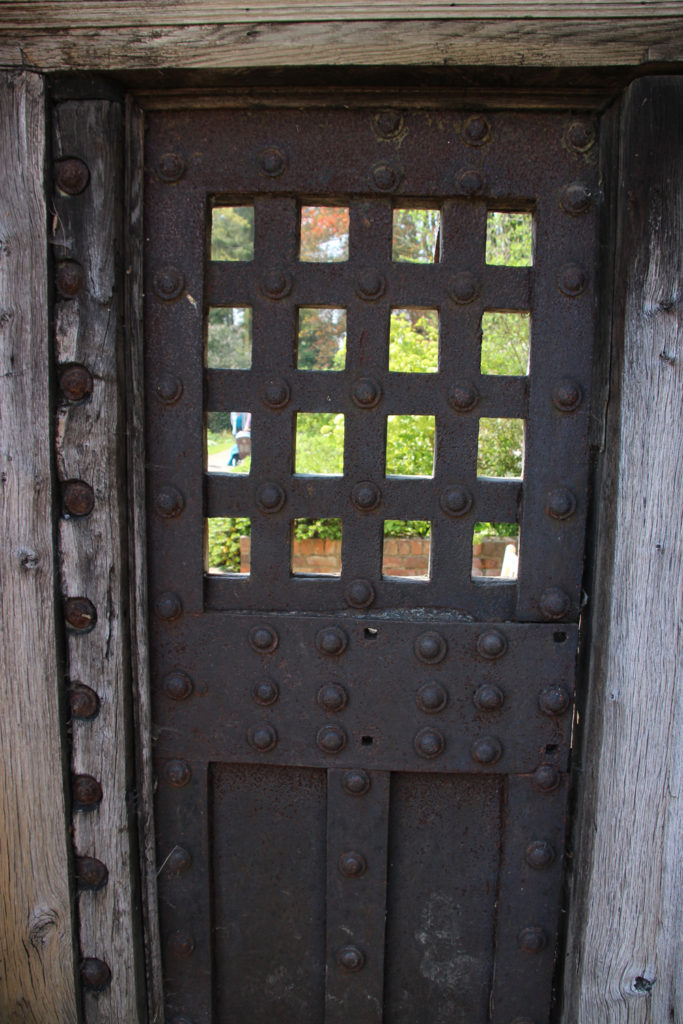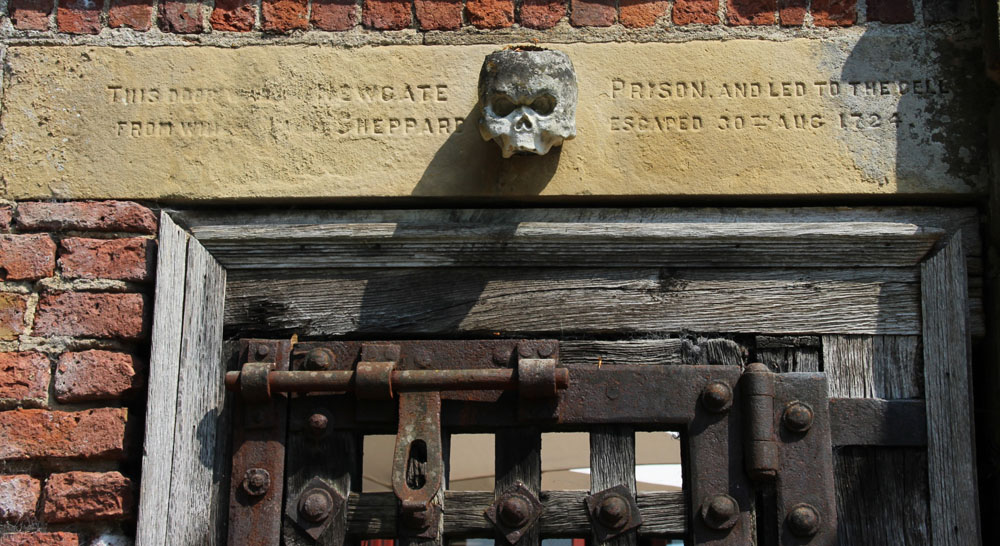Today I am pleased and proud to announce my first guest post – by Anna M. Thane, a writer is who is self-confessedly obsessed with the history of the Romantic Age. To bridge the interval until she can finally escape to Regency England in a time machine, she is working on her first historical novel. She also blogs about all things Regency at www.regency-explorer.net. Here she shares somer research on what you might expect of the penal system in the Georgian era.
 Time travellers find themselves in conflict with the law in 18th-century Britain will notice that the legal system isn’t exactly philanthropic. Here are some pieces of advice about prisons you should keep in mind before you set out on a criminal career or cut down a young tree in the late 1700s.
Time travellers find themselves in conflict with the law in 18th-century Britain will notice that the legal system isn’t exactly philanthropic. Here are some pieces of advice about prisons you should keep in mind before you set out on a criminal career or cut down a young tree in the late 1700s.
- Better pick an early year
It is very easy to get into serious trouble: From 1769 to 1810, the number of offences being punished by death rose from 160 to 222. - Better make sure it’s a misdemeanour
The most peculiar offences to be punished by death are: cutting down young trees, begging without a licence if you are a soldier or sailor, stealing from a rabbit warren, and impersonating a Chelsea Pensioner (i.e. a retired British soldier receiving a pension from the Royal Hospital Chelsea).
This massive door is an original from Newgate prison. In the 18th century, it kept the infamous thief Jack Sheppard under lock and key. Today, you can find the door outside the restaurant at Newby Hall in Ripon, Yorkshire. Walk behind it and experience a rare view from the prisoner’s side. © Anna M. Thane
- Better have an alibi
There was no presumption of innocence until the early 19th century. Defendants were expected to disprove the evidence presented against them and establish their innocence. - Better bring some money
Until about 1800, even people who were found not guilty had to pay a goal delivery fee. If they were too poor to pay it, they would be detained in prison until they somehow managed to pay.
The Newgate door. © Anna M. Thane
- Better bring some more money
Gaolers and their assistants were unpaid until 1782. They depended on the fees or bribes of the prisoners for their own subsistence. The practice of fees persisted even after gaolers were paid by the government. - Better find a nice hotel
In Newgate prison, a bed in a cell cost 3 shillings 6 pence a week. In the King’s Bench Prison, a prisoner could bring his own bed, but was charged 1 shilling 9 pence a week for a place to put it up. - Better pack some toiletries
Living conditions in a prison were a nightmare. Many prisoners died of ‘gaol distemper’ (also called ‘gaol fever’), believed to be caused by the prisoners’ own stench and nastiness. Gaol distemper was highly infectious; it happened that judges, jurymen and lawyers who had been in contact with an infected prisoner died of the disease. - Better travel with a doctor
The number of deaths from illness in prison was much higher than the number of deaths by execution: approximately 5,000 per year vs. about 200 each year. - Better don’t be an education snob
Prisoners could bring their children and spouse to prison by permission. The first prison school for children who were imprisoned with their mothers was founded by social reformer Elizabeth Fry in Newgate in 1816.

The Newgate door. © Anna M. Thane
- Better be ready to run
The record for multiple escapes from prison in the 18th century is held by the thief Jack Sheppard. He managed to break out of Newgate four times before he was finally hanged. A narrative about his escapes was sold at his execution, and plays about him quickly became popular. - Better be flexible in your itinerary
Convicts who had been sentenced to transportation were sent to America until transportation was halted in 1776 by the outbreak of war with America. Transportation resumed in 1787 with destination Australia. - Better have some special skills
Sending convicts into His Majesty’s service was frequently used during the War of American Independence (1775–83), and the Napoleonic Wars (1793–1815). Here, some criminal talents proved to be helpful: Wellington ordered former coin forgers to produce false coins to pay for provisions during the Peninsular War.
Sources
Cathcart Borer, Mary (1988). An Illustrated Guide to London 1800. London: Robert Hale.
Old Bailey Online
All photos were taken in the garden of Newby Hall, Skelton-on-Ure, Ripon HG4 5AE, UK.

Leave a Reply